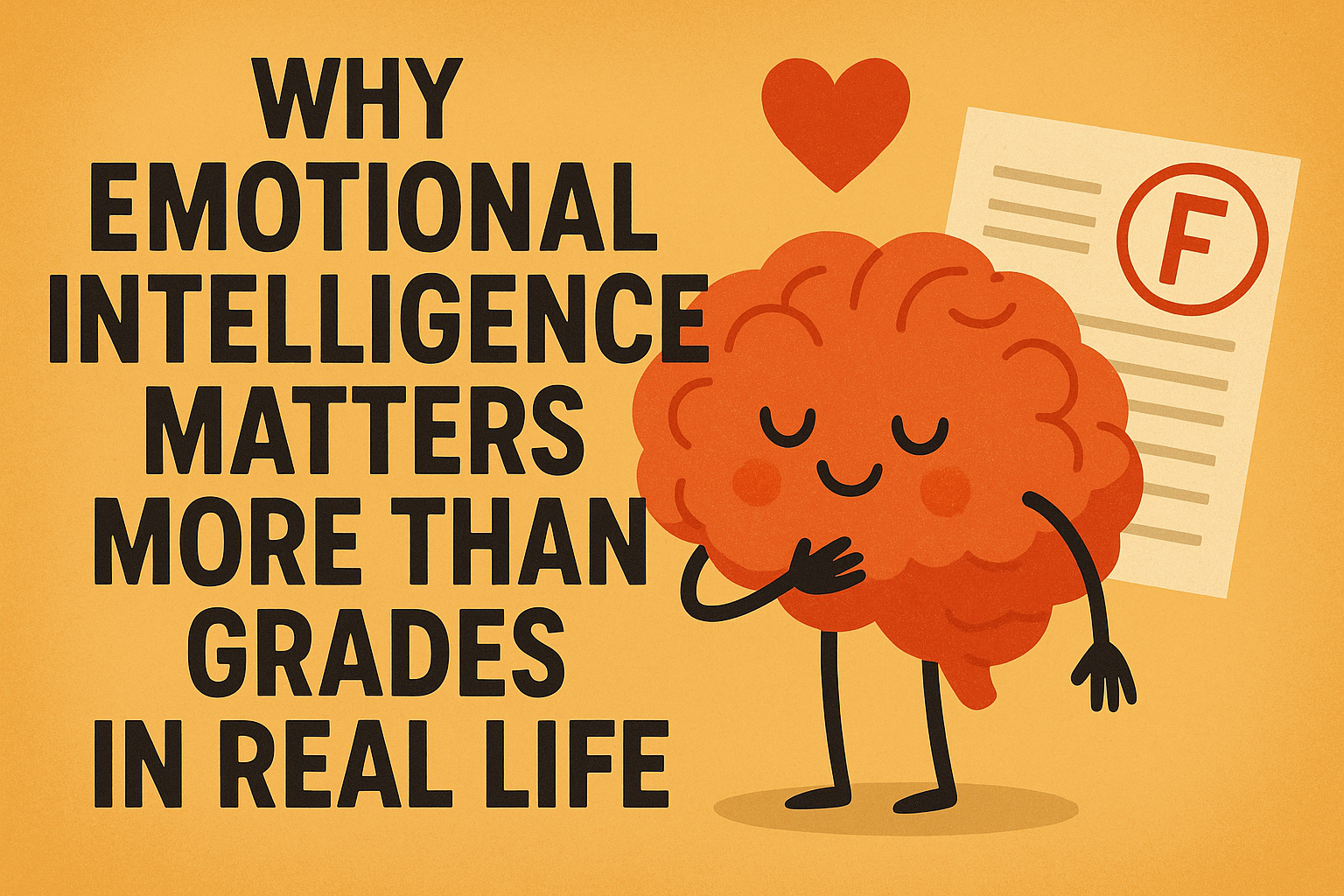


Last updated on: October 18, 2025
3 Views
Yuvika Rathi
College Student

Emotional intelligence (EQ) matters more than grades because it determines how effectively individuals manage emotions, build relationships, make decisions, and navigate real-world challenges. While grades reflect academic achievement, emotional intelligence shapes long-term success, well-being, and fulfillment in life.
Emotional intelligence is the ability to recognize, understand, and manage one’s emotions and to empathize with others. Psychologist Daniel Goleman identified its core components as self-awareness, self-regulation, motivation, empathy, and social skills. Unlike grades that measure academic performance temporarily, EQ is a lifelong skill influencing every interaction and decision.
| Aspect | Grades (IQ) | Emotional Intelligence (EQ) |
| Focus | Academic knowledge | Emotional and social understanding |
| Measurement | Exams, marks, GPA | Empathy, relationships, resilience |
| Duration | Temporary | Lifelong skill |
| Impact | Academic success | Life success, happiness, and adaptability |
1.Better Stress Management:
Emotionally intelligent people stay calm under pressure and view failure as growth, unlike grade-focused individuals who may break down under stress.
2.Stronger Relationships:
EQ fosters empathy, better communication, and trust—helping individuals connect deeply at home, school, and work.
3.Enhanced Decision-Making:
People with high EQ make thoughtful, ethical, and emotionally balanced decisions that benefit themselves and others.
4.Enduring Motivation:
Motivation driven by purpose and curiosity is long-lasting, while grade-based motivation fades quickly after exams.
5.Leadership and Workplace Success:
Studies show emotional intelligence predicts 80% of professional success, compared to 20% from IQ. High EQ leaders inspire trust, handle conflict, and create positive work cultures.
6.Improved Mental Health:
By regulating emotions and reducing stress, emotional intelligence contributes to emotional balance, resilience, and overall mental well-being.
Research consistently highlights that people with higher EQ enjoy better career performance, healthier relationships, and greater life satisfaction than those who rely on grades or IQ alone. As workplaces prioritize collaboration, adaptability, and empathy, emotional intelligence increasingly determines long-term success.
Grades may open doors, but emotional intelligence keeps those doors open. In real life, it is not your scorecard that defines your success but your ability to understand, communicate, and cope with emotions. Developing emotional intelligence is the foundation of a balanced, compassionate, and purpose-driven life.